Campus/People
-
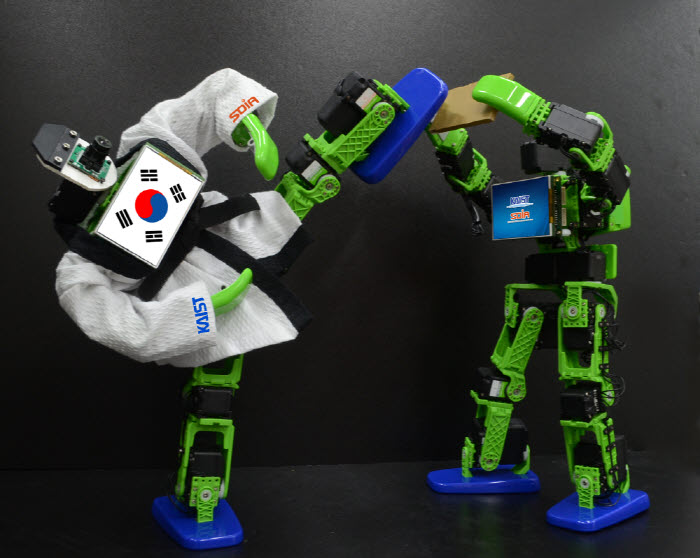 Final Results of the 2013 Intelligent SoC Robot War
KAIST hosted the 2013 Intelligent System on Chip (SoC) Robot War, the largest intelligent robot contest in Korea, from Oct. 24 to 27 at KINTEX in Ilsan, Korea.
Professor Hoi-Jun Yoo, from the Department of Electrical Engineering at KAIST, started the contest in 2003 to promote Taekwondo, a Korean martial art, and Korean semiconductor technology to the world.
The winning team was awarded an honorary certificate from Kookiwon, the world headquarters of Taekwondo.
Competitions were held in two different categories: Taekwon Robot and Huro Competition.
In the Taekwon Robot contest, intelligent robots loaded with cameras and semiconductor chips competed in Taekwondo skills.
In the Huro Competition, intelligent humanoid robots competed in detecting and passing huddles.
Approximately 550 participants from 107 groups applied for the 12th Intelligent SoC Robot War and 22 groups were selected for the final tournament. The best teams in each category received an award from the president and prime minister of the Republic of Korea, respectively.
Professor Yoo, the operating chair of the contest, said, “The contest was organized to introduce both technology and tradition by presenting robots with Taekwondo skills. The experiences from this contest could be the foundation for future robot technology and the growth engine for the next generation.”
Professor Yoo is a leading researcher in the field of object recognition chip, and his papers were often presented at the International Solid State Circuits Conference.Details of the contest can be found at http://www.socrobotwar.org.
2013.11.15 View 8191
Final Results of the 2013 Intelligent SoC Robot War
KAIST hosted the 2013 Intelligent System on Chip (SoC) Robot War, the largest intelligent robot contest in Korea, from Oct. 24 to 27 at KINTEX in Ilsan, Korea.
Professor Hoi-Jun Yoo, from the Department of Electrical Engineering at KAIST, started the contest in 2003 to promote Taekwondo, a Korean martial art, and Korean semiconductor technology to the world.
The winning team was awarded an honorary certificate from Kookiwon, the world headquarters of Taekwondo.
Competitions were held in two different categories: Taekwon Robot and Huro Competition.
In the Taekwon Robot contest, intelligent robots loaded with cameras and semiconductor chips competed in Taekwondo skills.
In the Huro Competition, intelligent humanoid robots competed in detecting and passing huddles.
Approximately 550 participants from 107 groups applied for the 12th Intelligent SoC Robot War and 22 groups were selected for the final tournament. The best teams in each category received an award from the president and prime minister of the Republic of Korea, respectively.
Professor Yoo, the operating chair of the contest, said, “The contest was organized to introduce both technology and tradition by presenting robots with Taekwondo skills. The experiences from this contest could be the foundation for future robot technology and the growth engine for the next generation.”
Professor Yoo is a leading researcher in the field of object recognition chip, and his papers were often presented at the International Solid State Circuits Conference.Details of the contest can be found at http://www.socrobotwar.org.
2013.11.15 View 8191 -
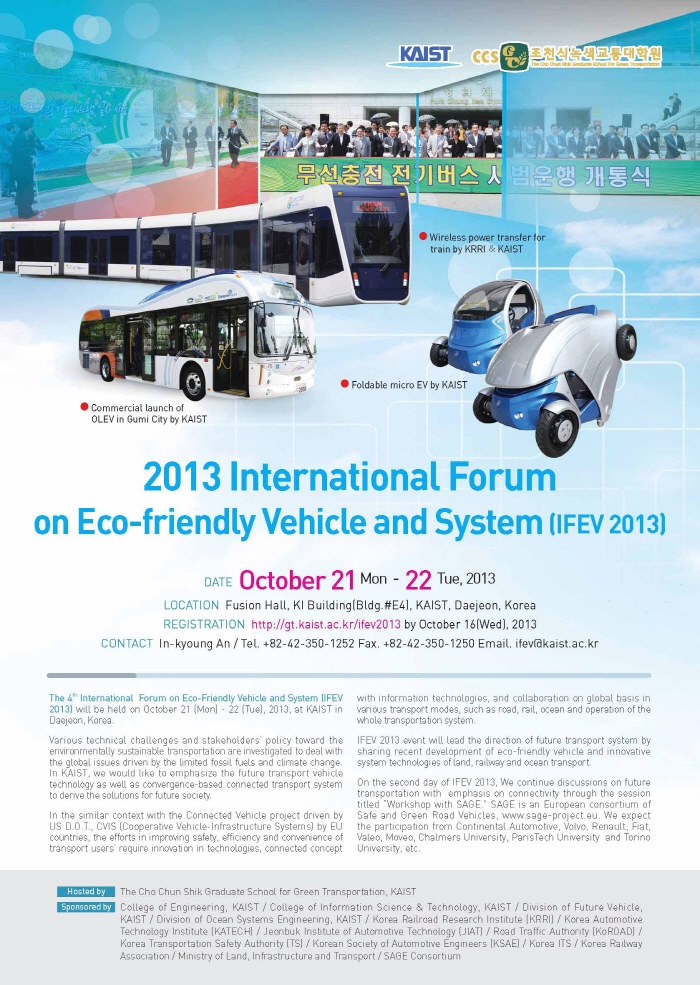 2013 International Forum on Eco-Friendly Vehicle and System
Leaders in transportation technology gathered at KAIST to discuss commercialization & standardization and to encourage the exchange of research progress, strategy, and future initiatives in transportation technology.
The Graduate School for Green Transportation at KAIST hosted the 2013 International Forum on Eco-friendly Vehicles and Systems (IFEV) in Fusion Hall of the KAIST Institute Building from October 21 to 22.
About 50 leaders in the field of future transportation from academic institutes and industries including Dr. Soon-Man Hong, President of Korea Railroad Research Institute (KRRI), Dr. Kwang-Hee Nam, Professor at Pohang University of Science and Technology (POSTECH), and Mr. Mike Schagrin, the Intelligent Transportation Systems Program Manager of the US Department of Transportation (retired) participated in the 4th annual IFEV.
The commercialization & standardization session and a technical session were followed by the plenary meeting of the forum.
Dr. Hong, the keynote speaker, introduced the High Capacity Double Deck High Speed Train, Near Surface Subway System, and Urban Railway System with Wireless Power Transfer Technology under the title “Korea’s Policy and Technology Initiative for Enhancing Green Transport Systems.”
Dr. Kwang-Hee Nam presented “Electric Vehicle Trends & the POSTECH E-Car Research Center Power Train Design,” followed by Mr. Mike Schagrin who spoke about “Going Green with Connected Automation.”
Dr. Omer C. Onar from the Oak Ridge National Laboratory (ORNL) shared recent research on “ORNL Development in Stationary and Dynamic Wireless Charging.”
In the commercialization session, Faical Turki of Vahle, Germany, presented “Wireless Inductive Battery Chargers,” and Professor Kazuyuki Ouchi from Tokyo University presented “Wind Challenger, the Next Generation Hybrid Vessels.”
In the technical session, presentations and discussions were performed on future ground vehicles and railroad technology, intelligent transportation systems and strategy, and policy on eco-friendly vehicle technology, including Professor In-Soo Suh of the Graduate School for Green Transportation at KAIST who presented on “Armadillo-T: 4WD Micro Electric EV with a Foldable Body Concept.”
On the second day of IFEV 2013, representatives of the European Union’s Safe and Green Road Vehicles (SAGE) consortium discussed connectivity in road transportation as a means of improving safety, efficiency and convenience in future safe and green vehicles with collaboration from Korean transportation organizations such as the Korea Transport Institute and Electronics and Telecommunications Research Institute.
Professor Suh, who organized the forum, said, “This forum will serve as an excellent opportunity to discuss and share R&BD progress in the green transportation field. “Details can be found at http://gt.kaist.ac.kr/ifev2013/.
2013.11.15 View 10976
2013 International Forum on Eco-Friendly Vehicle and System
Leaders in transportation technology gathered at KAIST to discuss commercialization & standardization and to encourage the exchange of research progress, strategy, and future initiatives in transportation technology.
The Graduate School for Green Transportation at KAIST hosted the 2013 International Forum on Eco-friendly Vehicles and Systems (IFEV) in Fusion Hall of the KAIST Institute Building from October 21 to 22.
About 50 leaders in the field of future transportation from academic institutes and industries including Dr. Soon-Man Hong, President of Korea Railroad Research Institute (KRRI), Dr. Kwang-Hee Nam, Professor at Pohang University of Science and Technology (POSTECH), and Mr. Mike Schagrin, the Intelligent Transportation Systems Program Manager of the US Department of Transportation (retired) participated in the 4th annual IFEV.
The commercialization & standardization session and a technical session were followed by the plenary meeting of the forum.
Dr. Hong, the keynote speaker, introduced the High Capacity Double Deck High Speed Train, Near Surface Subway System, and Urban Railway System with Wireless Power Transfer Technology under the title “Korea’s Policy and Technology Initiative for Enhancing Green Transport Systems.”
Dr. Kwang-Hee Nam presented “Electric Vehicle Trends & the POSTECH E-Car Research Center Power Train Design,” followed by Mr. Mike Schagrin who spoke about “Going Green with Connected Automation.”
Dr. Omer C. Onar from the Oak Ridge National Laboratory (ORNL) shared recent research on “ORNL Development in Stationary and Dynamic Wireless Charging.”
In the commercialization session, Faical Turki of Vahle, Germany, presented “Wireless Inductive Battery Chargers,” and Professor Kazuyuki Ouchi from Tokyo University presented “Wind Challenger, the Next Generation Hybrid Vessels.”
In the technical session, presentations and discussions were performed on future ground vehicles and railroad technology, intelligent transportation systems and strategy, and policy on eco-friendly vehicle technology, including Professor In-Soo Suh of the Graduate School for Green Transportation at KAIST who presented on “Armadillo-T: 4WD Micro Electric EV with a Foldable Body Concept.”
On the second day of IFEV 2013, representatives of the European Union’s Safe and Green Road Vehicles (SAGE) consortium discussed connectivity in road transportation as a means of improving safety, efficiency and convenience in future safe and green vehicles with collaboration from Korean transportation organizations such as the Korea Transport Institute and Electronics and Telecommunications Research Institute.
Professor Suh, who organized the forum, said, “This forum will serve as an excellent opportunity to discuss and share R&BD progress in the green transportation field. “Details can be found at http://gt.kaist.ac.kr/ifev2013/.
2013.11.15 View 10976 -
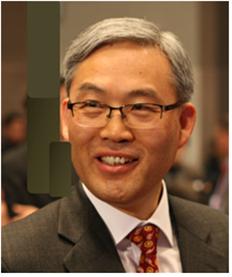 Professor Chun-Taek Rim Appointed as Associate Editor for IEEE TPEL
Professor Chun-Taek Rim of the nuclear and quantum engineering at KAIST was appointed as an associate editor of the Institute of Electrical and Electronics Engineers (IEEE) Transactions on Power Electronics (TPEL), an eminent academic journal bio-monthly published in the field of power electronics.The journal has a high impact factor (4.08), a measure reflecting the average number of citations to recent articles published in an academic journal, which ranks as the 6th the most influential journal among the 100 journals published by IEEE.Professor Rim was also appointed to an associate editor for IEEE Journal of Emerging and Selected Topics in Power Electronics in September in recognition of his expertise in wireless power and electric vehicles.
2013.11.15 View 9777
Professor Chun-Taek Rim Appointed as Associate Editor for IEEE TPEL
Professor Chun-Taek Rim of the nuclear and quantum engineering at KAIST was appointed as an associate editor of the Institute of Electrical and Electronics Engineers (IEEE) Transactions on Power Electronics (TPEL), an eminent academic journal bio-monthly published in the field of power electronics.The journal has a high impact factor (4.08), a measure reflecting the average number of citations to recent articles published in an academic journal, which ranks as the 6th the most influential journal among the 100 journals published by IEEE.Professor Rim was also appointed to an associate editor for IEEE Journal of Emerging and Selected Topics in Power Electronics in September in recognition of his expertise in wireless power and electric vehicles.
2013.11.15 View 9777 -
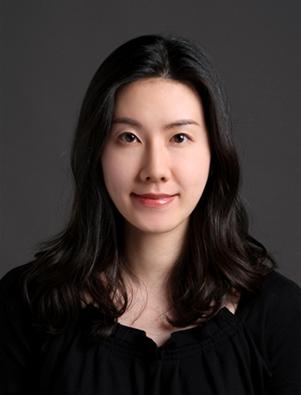 Professor Ji-Yun Lee, Received FAA Recognition Award
Professor Ji-Yun Lee, from the Department of Aerospace Engineering at KAIST, received the US Federal Aviation Administration (FAA) Recognition Award for her Ground-Based Augmentation System (GBAS) and her contribution to the development of satellite navigation technology.
GBAS contributes to the safety of aircraft navigation by providing flawless information with real-time location accuracy within one meter.
Professor Lee developed the monitoring software to improve the safety of GBAS users in her paper published in the International Journal of Radio Science in July of 2012.
The software will be distributed and used by many organizations including Eurocontrol following verification from the FAA technical center. It is expected to be standardized after discussions among international organizations.Professor Lee said, “As satellite navigation is applied to the infrastructure of air, marine, and ground transportation, as well as information & communications and finance, ensuring the performance and safety of the system is the most important factor. GBAS will be further developed and applied as a part of a global service system through international collaboration.”
2013.11.15 View 10067
Professor Ji-Yun Lee, Received FAA Recognition Award
Professor Ji-Yun Lee, from the Department of Aerospace Engineering at KAIST, received the US Federal Aviation Administration (FAA) Recognition Award for her Ground-Based Augmentation System (GBAS) and her contribution to the development of satellite navigation technology.
GBAS contributes to the safety of aircraft navigation by providing flawless information with real-time location accuracy within one meter.
Professor Lee developed the monitoring software to improve the safety of GBAS users in her paper published in the International Journal of Radio Science in July of 2012.
The software will be distributed and used by many organizations including Eurocontrol following verification from the FAA technical center. It is expected to be standardized after discussions among international organizations.Professor Lee said, “As satellite navigation is applied to the infrastructure of air, marine, and ground transportation, as well as information & communications and finance, ensuring the performance and safety of the system is the most important factor. GBAS will be further developed and applied as a part of a global service system through international collaboration.”
2013.11.15 View 10067 -
 KAIST's Partnership Agreement with the Imperial College of Science, Technology and Medicine, UK
KAIST signed an agreement on academic and research cooperation with the Imperial College of Science, Technology (Imperial College London) and Medicine in the United Kingdom (UK) on November 6th, 2013 in London.
The two universities have been implementing collaboration programs at the department level in the areas of plastic electronics since September 2012 and systems engineering and molecular simulation since February 2013, but have never had a formal partnership agreement.
President Steve Kang from KAIST and Provost James Stirling from Imperial College London signed the comprehensive cooperation agreement which will not only strengthen the existing collaborations between the two institutions but also explore areas of mutual interest in the interdisciplinary study of big data, as well as in the fields of mechanical engineering, synthetic biology, and quantum physics.
Workshops, seminars, lectures, and conferences will be jointly organized and held to facilitate the exchange of research staff and faculty and to promote collaborations in research assignments. The universities will also look into the possibility of exchange programs for undergraduate and graduate students.
The partnership agreement will be effective for five years.
Minister Moon-Gi Choi from the Republic of Korea’s Ministry of Science, Information and Communications Technology (ICT) & Future Planning attended the signing ceremony as well and congratulated the establishment of the partnership, saying:
“We are living in the age of highly advanced science and technology that requires us to have a new economic development paradigm for sustainable growth. Through convergence research based on the application of ICT and technology innovation, we will have new opportunities for development. I hope KAIST and the Imperial College London will be at the forefront of such endeavors in coming years.”With its history spanning over 100 years, the Imperial College London is a public research university located in London, UK, specializing in science, engineering, medicine, and business. The university is regarded as being one of the most prestigious universities in the world, having eminent alumni such as Thomas Henry Huxley (biologist), H.G. Wells (author), and Sir Alexander Fleming (pharmacologist).
From left to right: Provost James Stirling, Minister Moon-Gi Choi, and President Steve Kang
2013.11.12 View 8376
KAIST's Partnership Agreement with the Imperial College of Science, Technology and Medicine, UK
KAIST signed an agreement on academic and research cooperation with the Imperial College of Science, Technology (Imperial College London) and Medicine in the United Kingdom (UK) on November 6th, 2013 in London.
The two universities have been implementing collaboration programs at the department level in the areas of plastic electronics since September 2012 and systems engineering and molecular simulation since February 2013, but have never had a formal partnership agreement.
President Steve Kang from KAIST and Provost James Stirling from Imperial College London signed the comprehensive cooperation agreement which will not only strengthen the existing collaborations between the two institutions but also explore areas of mutual interest in the interdisciplinary study of big data, as well as in the fields of mechanical engineering, synthetic biology, and quantum physics.
Workshops, seminars, lectures, and conferences will be jointly organized and held to facilitate the exchange of research staff and faculty and to promote collaborations in research assignments. The universities will also look into the possibility of exchange programs for undergraduate and graduate students.
The partnership agreement will be effective for five years.
Minister Moon-Gi Choi from the Republic of Korea’s Ministry of Science, Information and Communications Technology (ICT) & Future Planning attended the signing ceremony as well and congratulated the establishment of the partnership, saying:
“We are living in the age of highly advanced science and technology that requires us to have a new economic development paradigm for sustainable growth. Through convergence research based on the application of ICT and technology innovation, we will have new opportunities for development. I hope KAIST and the Imperial College London will be at the forefront of such endeavors in coming years.”With its history spanning over 100 years, the Imperial College London is a public research university located in London, UK, specializing in science, engineering, medicine, and business. The university is regarded as being one of the most prestigious universities in the world, having eminent alumni such as Thomas Henry Huxley (biologist), H.G. Wells (author), and Sir Alexander Fleming (pharmacologist).
From left to right: Provost James Stirling, Minister Moon-Gi Choi, and President Steve Kang
2013.11.12 View 8376 -
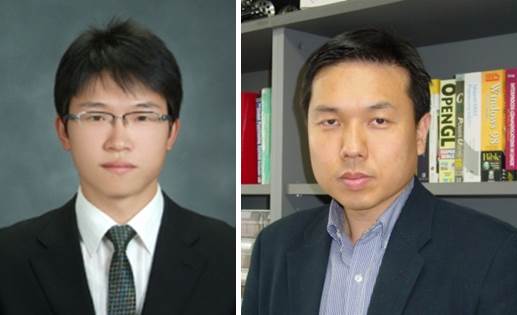 KAIST student wins Aerospace Student Papers Grand Prize
Dong-Il Yoo, a doctoral candidate under Professor Hyun-Chul Shim, at the Department of Aerospace Engineering, KAIST, has been awarded the Second Prize Award at the 11th Korea Aerospace Industries (KAI) Paper Contest. The award ceremony was held on October 30th at the media conference room at the KINTEX ADEX 2013 Exhibition in Seoul.
Yoo"s paper, titled "A Study on Virtual Pursuit Point-based Autonomous Air Combat Guidance Law for UCAV," is highly regarded for originality and creativity. The Field Robotics Center at the KAIST Institute, where Yoo conducted his research, also received the first prize at the 7th KAI Paper Contest.
The KAI Paper Contest was first organized in 2003 to promote academic interest and advance research and development in aerospace engineering among university students.
The KAI Paper Contest is one of the most prestigious contests in Korea. It is sponsored by the Ministry of Trade, Industry and Energy, the Ministry of Land, Infrastructure and Transport, the Korean Society for Aeronautical and Space Sciences, the Korea Aerospace Industries Association, and the Korea Civil Aviation Development Association.
Dong-Il Yoo (left) and Professor Hyun-Chul Shim (right)
2013.11.11 View 10837
KAIST student wins Aerospace Student Papers Grand Prize
Dong-Il Yoo, a doctoral candidate under Professor Hyun-Chul Shim, at the Department of Aerospace Engineering, KAIST, has been awarded the Second Prize Award at the 11th Korea Aerospace Industries (KAI) Paper Contest. The award ceremony was held on October 30th at the media conference room at the KINTEX ADEX 2013 Exhibition in Seoul.
Yoo"s paper, titled "A Study on Virtual Pursuit Point-based Autonomous Air Combat Guidance Law for UCAV," is highly regarded for originality and creativity. The Field Robotics Center at the KAIST Institute, where Yoo conducted his research, also received the first prize at the 7th KAI Paper Contest.
The KAI Paper Contest was first organized in 2003 to promote academic interest and advance research and development in aerospace engineering among university students.
The KAI Paper Contest is one of the most prestigious contests in Korea. It is sponsored by the Ministry of Trade, Industry and Energy, the Ministry of Land, Infrastructure and Transport, the Korean Society for Aeronautical and Space Sciences, the Korea Aerospace Industries Association, and the Korea Civil Aviation Development Association.
Dong-Il Yoo (left) and Professor Hyun-Chul Shim (right)
2013.11.11 View 10837 -
 Kinetic Lighting, Dlight, Dominates World Renowned Design Awards
Professor Sang-Min Bae
“D’light,” a lamp that transforms its lampshade shape, developed by a team led by KAIST Department of Industrial Design’s Professor Sang-Min Bae, won Japan’s Good Design Awards on October the 2nd, soon after winning the internationally renowned 2013 International Design Excellence Awards (IDEA) in August.
IDEA, sponsored by the Industrial Design Society of America (IDSA) and BusinessWeek, awards the best work from over 6,000 exhibits from 50 countries. Japan’s Good Design Awards, founded by the Japan Institute of Design Promotion (JDP) in 1957, is the most prestigious and one of the World’s four major design awards.
“D’light” combines “donative” and “light.” Its meaning originates from the meaning of “delight” which means “giving great joy.” The shape and the brightness of the lamp can be transformed by turning the end of the heart-shaped lampshade. The team states that the lamp carries a figurative meaning of generous hearts lighting the neglected of the world by designing the lamp to be the brightest when it takes the shape of a heart. D’light developed as the 5th product of “the Nanum” project that started in 2006. Professor Bae first participated in the project in developing the 2nd product, “Cross Cube” in 2007. The he designed and launched the environmentally friendly humidifier “Lovepot” in 2008 and interactive tumbler “Hearty” in 2009.
The “Nanum” project aims to develop innovative products for charity to create a humane social circulatory system. The project, led by the international relief and development organisation, World Vision and KAIST’s ID+IM laboratory run by Professor Bae, donates all profits to educate the children of low-income families. The project raised a total of 1.7 billion Korean won from 2007 this year to provide scholarships to 240 children in need.
Professor Bae’s team has undertaken seed and “Nanum” projects with the theme of philanthropy design helping people in need by creating innovative designs. The project has produced four excellent and authentic products which received 44 world renowned design awards.
Professor Bae said, “’The Nanum’ project consists of planning, designing, producing and selling for charity and donates all profit to children in need through education and scholarship.” He continued, “The consumers can purchase products that are aesthetically pleasing and convenient as well as gaining an opportunity to donate to children in need.”
Figure1 Kinetic lighting D’light
Figure 2. Characteristics of “Nanum” D’light
The shape of the lampshade can be transformed. The lamp sheds the brightest light when it takes the shape of a heart, hence showing the figurative meaning of brightening the neglected parts of the world with generous hearts.
Figure 3. Detailed Images of D’light
2013.11.11 View 8876
Kinetic Lighting, Dlight, Dominates World Renowned Design Awards
Professor Sang-Min Bae
“D’light,” a lamp that transforms its lampshade shape, developed by a team led by KAIST Department of Industrial Design’s Professor Sang-Min Bae, won Japan’s Good Design Awards on October the 2nd, soon after winning the internationally renowned 2013 International Design Excellence Awards (IDEA) in August.
IDEA, sponsored by the Industrial Design Society of America (IDSA) and BusinessWeek, awards the best work from over 6,000 exhibits from 50 countries. Japan’s Good Design Awards, founded by the Japan Institute of Design Promotion (JDP) in 1957, is the most prestigious and one of the World’s four major design awards.
“D’light” combines “donative” and “light.” Its meaning originates from the meaning of “delight” which means “giving great joy.” The shape and the brightness of the lamp can be transformed by turning the end of the heart-shaped lampshade. The team states that the lamp carries a figurative meaning of generous hearts lighting the neglected of the world by designing the lamp to be the brightest when it takes the shape of a heart. D’light developed as the 5th product of “the Nanum” project that started in 2006. Professor Bae first participated in the project in developing the 2nd product, “Cross Cube” in 2007. The he designed and launched the environmentally friendly humidifier “Lovepot” in 2008 and interactive tumbler “Hearty” in 2009.
The “Nanum” project aims to develop innovative products for charity to create a humane social circulatory system. The project, led by the international relief and development organisation, World Vision and KAIST’s ID+IM laboratory run by Professor Bae, donates all profits to educate the children of low-income families. The project raised a total of 1.7 billion Korean won from 2007 this year to provide scholarships to 240 children in need.
Professor Bae’s team has undertaken seed and “Nanum” projects with the theme of philanthropy design helping people in need by creating innovative designs. The project has produced four excellent and authentic products which received 44 world renowned design awards.
Professor Bae said, “’The Nanum’ project consists of planning, designing, producing and selling for charity and donates all profit to children in need through education and scholarship.” He continued, “The consumers can purchase products that are aesthetically pleasing and convenient as well as gaining an opportunity to donate to children in need.”
Figure1 Kinetic lighting D’light
Figure 2. Characteristics of “Nanum” D’light
The shape of the lampshade can be transformed. The lamp sheds the brightest light when it takes the shape of a heart, hence showing the figurative meaning of brightening the neglected parts of the world with generous hearts.
Figure 3. Detailed Images of D’light
2013.11.11 View 8876 -
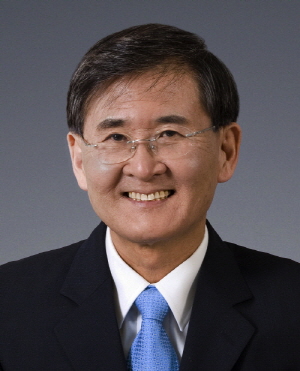 The World Economic Forum Invites KAIST to 2014 Davos Forum
President Steve Kang and Distinguished Professor Sang Yup Lee have been invited by the World Economic Forum (WEF) to attend its annual meeting slated for January 22-25, 2014 in Davos-Klosters, Switzerland.
The president will also join the Global University Leaders Forum (GULF) to be held during the annual meeting. The GULF consists of leading research universities throughout the world, at which President Kang will address agenda related to higher education and research.
From September 11th to 13th, KAIST was invited to the WEF’s 2013 Summer Davos Forum held in Dalian, China. The Summer Davos Forum is recognized as a barometer of the world economy, and KAIST hosted three sessions there.
In a session titled “Smart Regulations,” Professor Sang Yup Lee hosted presentations and discussions under the topic of “How regulation models can strengthen technical innovation and expansion.” President Steve Kang, Peter Sands, CEO of Standard Chartered Bank Group, Mark Weinberger, CEO of Ernest & Young, and Peter Terium, CEO of RWE, participated in the discussions.
The KAIST delegates also presented and participated in a session titled “From Trade Center to Innovative Hub” to discuss how to lead innovations in Asia, as well as “Marine Resources: Finding New Frontier” to address issues of how to develop and manage oceanic resources for potential growth.
President Kang said, “The World Economic Forum allows us to introduce the results of our innovative and creative research to global leaders and to demonstrate that our global position continues to grow.”
The WEF has been hosting Summer Davos Forum in China since 2007. About 1,500 participants from over 90 countries joined in this year’s summer forum under the theme of “Innovation: Inevitable Mainstream.” New strategies for innovations and solutions for global threats were suggested through presentations and discussions in 125 sessions.
The World Economic Forum (WEF) is an independent, international, and non-profit organization based in Geneva, Switzerland. It is committed to improving the state of the world by engaging business, political, academic, and government leaders to shape global, regional and industry agenda.
Among the meetings and forums organized by the WEF, its annual meeting held each January in Davos, a.k.a. the Davos Forum, has been the best known gathering. The Davos Forum brings together some 2,500 top business leaders, international political leaders, selected intellectuals and journalists to discuss the most pressing issues facing the world including health and environment.
2013.11.07 View 10071
The World Economic Forum Invites KAIST to 2014 Davos Forum
President Steve Kang and Distinguished Professor Sang Yup Lee have been invited by the World Economic Forum (WEF) to attend its annual meeting slated for January 22-25, 2014 in Davos-Klosters, Switzerland.
The president will also join the Global University Leaders Forum (GULF) to be held during the annual meeting. The GULF consists of leading research universities throughout the world, at which President Kang will address agenda related to higher education and research.
From September 11th to 13th, KAIST was invited to the WEF’s 2013 Summer Davos Forum held in Dalian, China. The Summer Davos Forum is recognized as a barometer of the world economy, and KAIST hosted three sessions there.
In a session titled “Smart Regulations,” Professor Sang Yup Lee hosted presentations and discussions under the topic of “How regulation models can strengthen technical innovation and expansion.” President Steve Kang, Peter Sands, CEO of Standard Chartered Bank Group, Mark Weinberger, CEO of Ernest & Young, and Peter Terium, CEO of RWE, participated in the discussions.
The KAIST delegates also presented and participated in a session titled “From Trade Center to Innovative Hub” to discuss how to lead innovations in Asia, as well as “Marine Resources: Finding New Frontier” to address issues of how to develop and manage oceanic resources for potential growth.
President Kang said, “The World Economic Forum allows us to introduce the results of our innovative and creative research to global leaders and to demonstrate that our global position continues to grow.”
The WEF has been hosting Summer Davos Forum in China since 2007. About 1,500 participants from over 90 countries joined in this year’s summer forum under the theme of “Innovation: Inevitable Mainstream.” New strategies for innovations and solutions for global threats were suggested through presentations and discussions in 125 sessions.
The World Economic Forum (WEF) is an independent, international, and non-profit organization based in Geneva, Switzerland. It is committed to improving the state of the world by engaging business, political, academic, and government leaders to shape global, regional and industry agenda.
Among the meetings and forums organized by the WEF, its annual meeting held each January in Davos, a.k.a. the Davos Forum, has been the best known gathering. The Davos Forum brings together some 2,500 top business leaders, international political leaders, selected intellectuals and journalists to discuss the most pressing issues facing the world including health and environment.
2013.11.07 View 10071 -
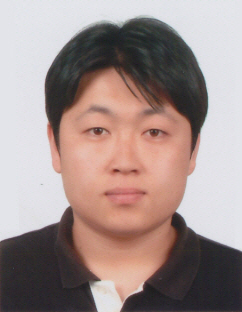 KAIST graduate appointed as professor at Southeast University in China
Dr. Yoon-Kyu Ahn has been appointed as a professor in the civil engineering department at Southeast University in Nanjing, China.
Dr. Ahn earned his Master’s and Ph.D. in civil & environmental engineering at KAIST, under the guidance of Professor Hoon Sohn, following his undergraduate studies at Korea University.His appointment is considered quite exceptional since most of top Chinese universities are likely hiring professors from the US and EU as a general trend.Ranked third in the field of civil engineering in China, Southeast University has been among the top ten universities in the nation. The university has 27,000 students with 1,300 faculty members in 34 schools.
2013.11.06 View 6431
KAIST graduate appointed as professor at Southeast University in China
Dr. Yoon-Kyu Ahn has been appointed as a professor in the civil engineering department at Southeast University in Nanjing, China.
Dr. Ahn earned his Master’s and Ph.D. in civil & environmental engineering at KAIST, under the guidance of Professor Hoon Sohn, following his undergraduate studies at Korea University.His appointment is considered quite exceptional since most of top Chinese universities are likely hiring professors from the US and EU as a general trend.Ranked third in the field of civil engineering in China, Southeast University has been among the top ten universities in the nation. The university has 27,000 students with 1,300 faculty members in 34 schools.
2013.11.06 View 6431 -
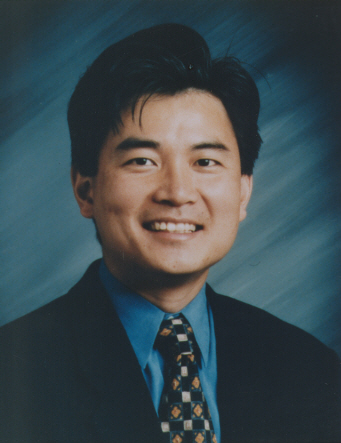 Professor Jae-Hyung Lee appointed as AIChE fellow
Professor Jae-Hyung Lee from the Department of Chemical and Bimolecular Engineering at KAIST was appointed as a fellow in the American Institute of Chemical Engineers (AIChE).
Established in 1908, AIChE is the largest association of chemical engineers worldwide, which now boasts more than 40,000 members from 90 countries.
Following Distinguished Professor Sang Yup Lee from the same department at KAIST, Professor Jae-Hyung Lee is the second Korean appointed as a fellow by the organization.
He has been acknowledged for his innovative research on the improvement of model predictive control of industrial processes.
Professor Lee is the director of the Saudi Armaco-KAIST CO2 Management Center at KAIST, a fellow of the Institute of Electrical and Electronics Engineers (IEEE) and the International Federation of Automatic Control (IFAC), and a member of the Korean Academy of Science and Technology.
He received the Young Investigator Award from the National Science Foundation (NSF) in 1994 and the Computing in Chemical Engineering Award from AIChE in 2013.
2013.11.05 View 8674
Professor Jae-Hyung Lee appointed as AIChE fellow
Professor Jae-Hyung Lee from the Department of Chemical and Bimolecular Engineering at KAIST was appointed as a fellow in the American Institute of Chemical Engineers (AIChE).
Established in 1908, AIChE is the largest association of chemical engineers worldwide, which now boasts more than 40,000 members from 90 countries.
Following Distinguished Professor Sang Yup Lee from the same department at KAIST, Professor Jae-Hyung Lee is the second Korean appointed as a fellow by the organization.
He has been acknowledged for his innovative research on the improvement of model predictive control of industrial processes.
Professor Lee is the director of the Saudi Armaco-KAIST CO2 Management Center at KAIST, a fellow of the Institute of Electrical and Electronics Engineers (IEEE) and the International Federation of Automatic Control (IFAC), and a member of the Korean Academy of Science and Technology.
He received the Young Investigator Award from the National Science Foundation (NSF) in 1994 and the Computing in Chemical Engineering Award from AIChE in 2013.
2013.11.05 View 8674 -
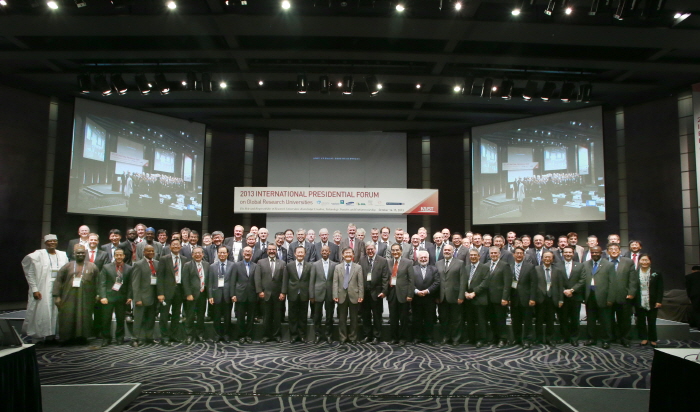 KAIST Hosted the 6th International Presidential Forum on Global Research Universities
More than 120 global leaders from higher education, private and public sectors, to discuss the promotion of economic growth through knowledge creation and entrepreneurship
The Korea Advanced Institute of Science and Technology (KAIST) held the 6th International Presidential Forum on Global Research Universities (IPFGRU) on October 15th at the Westin Chosun Hotel in Seoul, Republic of Korea.
About 64 presidents and vice presidents from 57 research universities in 28 nations attended for a presentation and panel discussion on the topic of “The Role and Responsibility of Research Universities: Knowledge Creation, Technology Transfer, and Entrepreneurship.”Annually held, the forum is organized to promote excellence and innovation in higher education and provide a place for discussion among prominent research university leaders and key policy-makers in the private and public sectors from across the world.Among the notable universities attending the 2013 forum were the University of California, Irvine, the École Polytechnique Fédérale de Lausanne, Technische Universität Berlin, Technion-Israel Institute of Technology, Tokyo Institute of Technology, Rice University, the University of Waterloo, and Massachusetts Institute of Technology (MIT). Government officials as well as representatives from business and industry such as Samsung Electronics, Korea Telecom, and Elsevier also joined the event.
The forum was proceeded with three separate sessions: Enabling Knowledge Creation, Entrepreneurship & University-Based Technology Transfer, and Higher Education & Strategic Knowledge Creation: Specialization & Performance, through which speakers and panelists examined how universities have played a role in knowledge creation and technology transfer, and ultimately how they have contributed to the development of national economies.
Keynote speakers were Michael Drake, chancellor of UC Irvine, and Jörg Steinbach, president of Technische Universität Berlin. Forum participants shared their experiences and insights in starting up knowledge- and technolgy-based new businesses.
Steve Kang, president of KAIST, talked about the purpose of the 2013 IPFGRU:
“In the face of an ever-changing economic climate driven by shifts in technological advancement, demographic trends, and global integration, the role of research universities is becoming ever more significant in achieving sustainable economic growth. This forum will help participants from around the world to define the choices ahead as universities seek the most productive and beneficial models for cooperation with industry, venture startups, and government.”For the 2013 IPFGRU, Ministry of Science, ICT, and Future Planning, ROK, Saudi Aramco, Samsung Heavy Industries, S-Oil, Elsevier, Thomson Reuters, and the Korea Economic Daily were forum sponsors.
2013.11.04 View 9370
KAIST Hosted the 6th International Presidential Forum on Global Research Universities
More than 120 global leaders from higher education, private and public sectors, to discuss the promotion of economic growth through knowledge creation and entrepreneurship
The Korea Advanced Institute of Science and Technology (KAIST) held the 6th International Presidential Forum on Global Research Universities (IPFGRU) on October 15th at the Westin Chosun Hotel in Seoul, Republic of Korea.
About 64 presidents and vice presidents from 57 research universities in 28 nations attended for a presentation and panel discussion on the topic of “The Role and Responsibility of Research Universities: Knowledge Creation, Technology Transfer, and Entrepreneurship.”Annually held, the forum is organized to promote excellence and innovation in higher education and provide a place for discussion among prominent research university leaders and key policy-makers in the private and public sectors from across the world.Among the notable universities attending the 2013 forum were the University of California, Irvine, the École Polytechnique Fédérale de Lausanne, Technische Universität Berlin, Technion-Israel Institute of Technology, Tokyo Institute of Technology, Rice University, the University of Waterloo, and Massachusetts Institute of Technology (MIT). Government officials as well as representatives from business and industry such as Samsung Electronics, Korea Telecom, and Elsevier also joined the event.
The forum was proceeded with three separate sessions: Enabling Knowledge Creation, Entrepreneurship & University-Based Technology Transfer, and Higher Education & Strategic Knowledge Creation: Specialization & Performance, through which speakers and panelists examined how universities have played a role in knowledge creation and technology transfer, and ultimately how they have contributed to the development of national economies.
Keynote speakers were Michael Drake, chancellor of UC Irvine, and Jörg Steinbach, president of Technische Universität Berlin. Forum participants shared their experiences and insights in starting up knowledge- and technolgy-based new businesses.
Steve Kang, president of KAIST, talked about the purpose of the 2013 IPFGRU:
“In the face of an ever-changing economic climate driven by shifts in technological advancement, demographic trends, and global integration, the role of research universities is becoming ever more significant in achieving sustainable economic growth. This forum will help participants from around the world to define the choices ahead as universities seek the most productive and beneficial models for cooperation with industry, venture startups, and government.”For the 2013 IPFGRU, Ministry of Science, ICT, and Future Planning, ROK, Saudi Aramco, Samsung Heavy Industries, S-Oil, Elsevier, Thomson Reuters, and the Korea Economic Daily were forum sponsors.
2013.11.04 View 9370 -
 Artist in residence program at KAIST
A new and innovative program to support artists’ creative activities was launched by KAIST for the first time in Korean college history.
The artist in residence program is an unusual collaboration between engineers and artists. Out of hundreds of applicants for the program, three writers were selected: a novelist, web-based cartoonist, and screen writer. In late October, they became the residents of KAIST.
Housing and an office are provided for the writers in addition to a monthly cash stipend of 800,000 won for up to six months. A variety of programs will be available as well including a tour of laboratories to help the writers get ideas and inspiration.
KAIST’s Vice President Jun-Ho Oh, the founder of the program, said, “Artists can freshen their imagination, and KAIST members can benefit from them to promote creative and innovative ideas through exchange and collaboration.”
2013.11.04 View 6188
Artist in residence program at KAIST
A new and innovative program to support artists’ creative activities was launched by KAIST for the first time in Korean college history.
The artist in residence program is an unusual collaboration between engineers and artists. Out of hundreds of applicants for the program, three writers were selected: a novelist, web-based cartoonist, and screen writer. In late October, they became the residents of KAIST.
Housing and an office are provided for the writers in addition to a monthly cash stipend of 800,000 won for up to six months. A variety of programs will be available as well including a tour of laboratories to help the writers get ideas and inspiration.
KAIST’s Vice President Jun-Ho Oh, the founder of the program, said, “Artists can freshen their imagination, and KAIST members can benefit from them to promote creative and innovative ideas through exchange and collaboration.”
2013.11.04 View 6188